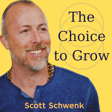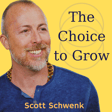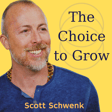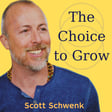
Your Life Is the Practice with Eugene Pustoshkin
Eugene Pustoshkin is an integral psychologist, translator into Russian of Ken Wilber’s work, and co-founder of the Integral Awareness Meditation process. He brings forward a richly textured transmission on waking up, growing up, and showing up in life. Drawing from integral theory, mystical traditions, and his own path of translating wisdom into lived practice, Eugene weaves a map of radical wholeness, creativity, and presence. If you’ve ever wondered how deep philosophy meets direct experience, this is your portal.
With two decades of experience studying and working with and teaching from the Integral Framework and various transpersonal approaches, Eugene has developed an intimate knowledge of this field through his translation of a dozen books by Ken Wilber into Russian. He serves as Chief Editor at Eros & Kosmos (ErosKosmos.org), the Russian Integral online journal, and as Bureau Chief for Russia at Transdisciplinary Leadership Review (formerly Integral Leadership Review).
"Eugene Pustoshkin is a major representative and promoter of Integral Meta-Theory in Russia. He has a superb understanding of this radically new approach, and he has worked endlessly to get it accepted and spread in Russia (and elsewhere). He has particularly helped by translating many of my works into Russian, and has done a brilliant job with this task. I'm deeply grateful to the work he has done to help promote and spread Integral Meta-Theory, and I can certainly recommend highly any projects that he is associated with." — Ken Wilber, philosopher, founder of Integral Metatheory and Practice, author of A Brief History of Everything and The Religion of Tomorrow (and other books)
Eugene’s website in English: http://integralmeditation.ru/en
Integral Space YouTube:
https://www.youtube.com/channel/UCqYHMVZO6Z6gL12bORk6LLw
Blog Transcendelia: https://www.pustoshkin.com/
Integral online journal Eros & Kosmos [abbreviated English version]:
http://eroskosmos.org/english
Scott Schwenk - Master Coach, Spiritual Teacher, Culture Architect
Scott’s teachings, courses and private mentoring guide leaders, seekers and creatives to explore their deepest selves in service of thriving on all levels of being, both individually and relationally.
Host and creator of the podcast The Choice To Grow, Scott is known for his hugely popular courses and workshops with OneCommune.com, Younity.com, Wanderlust Festivals, and Unplug Meditation, Scott has been catalyzing the inner evolution of others for decades: helping them to grow, transform obstacles into opportunities, and find Love within.
Scott spent several years living and studying in a meditation monastery which introduced him to the core body of Tantric meditation traditions which continue to flow through each of his teachings. Scott continues to study and teach from two key Tantric lineage streams.
Apprenticeships in leadership development, meditation and philosophy training, shadow work/shadow resolution and spiritual awakening are all part of Scott’s development into the thought-leader that he is today. He continues to refine his offerings studying and practicing with key innovators at the leading edges of human development.
Scott’s teachings support the entire person to not only progressively recognize, stabilize and embody our inextricable oneness with the source of creation (Waking Up), but also to resolve the wounds of the past (Cleaning Up), continually expand our capacities for wider and more inclusive perspectives on any moment (Growing Up) and creatively and joyfully participate and collaborate with all of life as a loving thriving human being (Showing Up).
You can receive a free guided meditation and explore Scott’s courses, workshops, retreats, training and master coaching at https://scottschwenk.com and can find him on Instagram @thescottschwenk.



